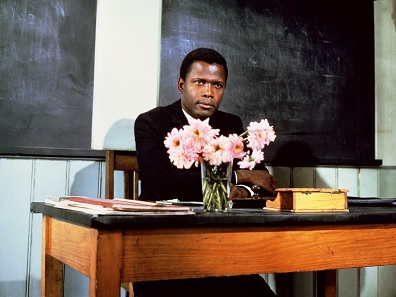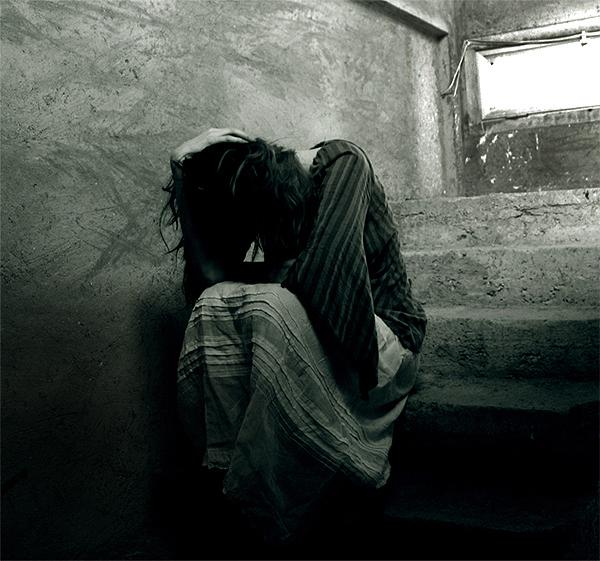 I was 29 years old when I did my student teaching. The first day I was with my new mentor, he asked me at lunch if I’d been paying attention as I sat in his classroom while he talked through whatever that day’s topic happened to be. I said I had. “Great,” he told me. “How ‘bout you take over after lunch?”
I was 29 years old when I did my student teaching. The first day I was with my new mentor, he asked me at lunch if I’d been paying attention as I sat in his classroom while he talked through whatever that day’s topic happened to be. I said I had. “Great,” he told me. “How ‘bout you take over after lunch?”
I seem to have stumbled through well enough, and at the end of the day he asked me the same basic things he’d ask me every day I was with him.
What do you think went well?
Anything you would do differently next time?
Did you notice ________________ ? {Usually a disengaged student or other issue.}
How do you think you might handle/fix/address __________________? {Some difficulty specific to that day’s topic or skill.}
It was intimidating as hell. Made me all kinds of uncomfortable. I got used to it, however, and it forced me to be a bit more intentional about my planning and – more importantly – my reflections. In retrospect, I’m thankful for his approach (well, not the taking over the first day… but the rest of it) and I still frame my discussions with baby teachers in the much the same terms. For that matter, I periodically run through the same basic questions with myself.
In recent years, I’ve had a nagging realization which I’ve shamefully tried to ignore. An adjustment which needs to be made in my classroom. Something that should help many of my kids. It would probably do wonders for my stress levels as well, once established and… comfortable.
Assuming it ever became comfortable.
And yet I don’t seem to be doing it. Not yet. It’s unforgiveable.
 I need to become a hard-ass. Or… hard-er, at least.
I need to become a hard-ass. Or… hard-er, at least.
Not in terms of attitude. That’s just not me. I can be firm from time to time (and in brief bursts), but I’ll never be the drill sergeant, the no-excuses, stand-up-straight-when-you’re-giving-me-another-dumb-answer type. I’m not universally against a little harshness – not when it comes with consistency and fairness and a genuine commitment to the long-term success and happiness of kids. But that’s not me. Not by any stretch.
My relationships with my kids are fairly casual. I don’t mean they’re boundary-free – I’m not going to their parties or talking to them about my ex-wife. But my preferred tone is relaxed and low-judgement, and my classroom management fairly loose. Sometimes that means wrestling to keep things on track, and accepting that not every kid makes great choices about how far to color outside the lines, but that’s a trade-off I can live with.
It’s not tone, or discipline, or even the proverbial “bar” of high academic expectations in which I fear I’ve failed my young wards. It’s more basic than that.
I think I need to stick to due dates. Late policies. Expectations, especially when it comes to having one’s proverbial manure together. Insisting they keep and maintain a clue or two, if you will.
I’ve written about this before – more proof I know better and have failed to adequately act – but I keep hoping it will magically become unnecessary. I’ve instead kept doing the same basic thing and hoping for a different outcome each semester – and we all know what that’s called.
 I have some pretty reasonable policies regarding late work – if I followed them. They’re not particularly draconian. Anything skill-based can be attempted multiple times, and in some circumstances students can “earn” retakes of quizzes or whatever. There are enough grades throughout the year that a rough week or two isn’t enough to do lasting harm. Even poor test-takers should be fine if they take care of everything else.
I have some pretty reasonable policies regarding late work – if I followed them. They’re not particularly draconian. Anything skill-based can be attempted multiple times, and in some circumstances students can “earn” retakes of quizzes or whatever. There are enough grades throughout the year that a rough week or two isn’t enough to do lasting harm. Even poor test-takers should be fine if they take care of everything else.
I’m all about the mercy and the understanding and the making exceptions and compromising and stuff. That is, I fear, the problem.
Giving a child extra time on an assignment because life is complicated is supposed to help them. There’s no other reason to do it.
We’ve all been in the workshops or faculty meetings where some earnest administrator or guest speaker is pushing for a ‘no zeroes’ policy or ‘standards-based education’, both of which have some interesting foundations but too easily end up meaning ‘just pass the little turds whether they do anything or not so we can move on’. Because we’re putting so much energy into hiding our eye-rolling and resisting the urge to scream, it’s easy to miss the possibility that they MIGHT have a point. If the work we assign is useful, the reasoning goes, it’s better that kids do it eventually. If it’s not essential for them to at least give it a shot, why are we assigning it? Zeroes just let them off the hook.
In other words, it’s better for the student if they can still do the work – especially when their lives are genuinely complicated and they’re still learning how to play secondary school.
And yet…
In recent years, it no longer seems that I’m offering them a rope when I allow due dates to evolve. It’s more like I’m pouring an unending supply of brightly colored spheres into their personal ball pit of hopelessness – and someone’s peed on the safety foam. Instead of helping them get back on track, every act of supposed grace seems to mire them further in the past, adding endless obstacles to their academic escape room.
Teenagers, as you may have noticed, are not always great with calculated decisions and sustained pedagogical commitment. Even the ‘good’ ones tend to oscillate between over-achievement (or at least grade-obsessiveness) and stretches of complete inability to muster two tiny little damns about the Swahili Coast and what it reflected about change and continuity in Indian Ocean Trade.
I mean, seriously – how can you NOT perk up and shine for THAT? Those crazy Portuguese – AMIRIGHT?!?
 Students are going to mess up. They’re going to get behind – which, in a history class, changes everything. If there’s going to be collaboration, or meaningful discussions, or if we’re going to go truly wild with some tasty primary sources or thesis-writing, there has to be SOME expectation that everyone is on the same proverbial (or literal) page, content-wise. Otherwise, they might as well all stay home and take the class online, dispelling the illusion that we’re a “class” and not just a bunch of people sharing classroom space here and there.
Students are going to mess up. They’re going to get behind – which, in a history class, changes everything. If there’s going to be collaboration, or meaningful discussions, or if we’re going to go truly wild with some tasty primary sources or thesis-writing, there has to be SOME expectation that everyone is on the same proverbial (or literal) page, content-wise. Otherwise, they might as well all stay home and take the class online, dispelling the illusion that we’re a “class” and not just a bunch of people sharing classroom space here and there.
But the whole idea of “catching up” is problematic in and of itself. The student who was for whatever reason unwilling or unable to keep up last week isn’t usually primed to do double the reading, double the analysis, or even double the grunt-work this week. The increasingly common result is that they put off whatever they’re supposed to be doing NOW in order to scramble through stuff from last week – or the week before, or the one before that. The quality isn’t high because they’re rushing, even assuming they’re not just copying from their friends, who by that time have their assignments graded and returned.
Even in class, I’ll see students disengaged from what we’re doing today because they’re trying to plug a hole from two weeks ago. That means the pattern can’t help but continue because in a few weeks they’ll be pleading for some sort of make-up version of the stuff they WERE here for, but not ENGAGED in. And my heart will hurt for them, and I’ll be stupid and consider some sort of compromise, because I want them to make it.
 There’s a good argument to be made for building personal responsibility and school skills and life skills as well via the relatively benign experience of actual deadlines and cutoffs; I haven’t even really wrestled with that aspect yet. Kannimayketup Swamp has pretty much dominated my concerns – probably because of all the damned irony involved.
There’s a good argument to be made for building personal responsibility and school skills and life skills as well via the relatively benign experience of actual deadlines and cutoffs; I haven’t even really wrestled with that aspect yet. Kannimayketup Swamp has pretty much dominated my concerns – probably because of all the damned irony involved.
There are ways to partially control for much of this, of course. Teachers develop all sorts of policies to circumvent student shenanigans or foolishness. Most require a diligence I don’t naturally manifest, and many involve detailed record-keeping and personal organization.
But one of the most effective might also be one of the simplest. I think I need to say “no” more often. No, you can’t turn that in late. Sorry. Sucks to be you.
Maybe I won’t add that last part. But there’s a freedom to knowing that it’s too late – a painful freedom, perhaps, but a freedom nonetheless. It’s like closing off some of the side roads so that the only path forward is through THIS HERE RIGHT NOW.
Of course there will be alternatives in some cases – ways to “earn” that opportunity. There will be special circumstances to which I’ll likely adjust. Maybe a few situations in which it just doesn’t seem right to—
And it starts all over again.
I’m not sure where I’ll land on this come August, but I do know that I’m not letting it completely slide another school year. Hard lines and organized expectations are NOT my strongest gifts, but I can do it if I genuinely believe it’s best for my kids.
And I think I do.

RELATED POST: In Defense of Due Dates & Deadlines
RELATED POST: Ten Truths For The Overwhelmed Student
RELATED POST: The Sticker Revolution

 Teacher retention is a… challenge – ‘challenge’ here meaning ‘nightmare-of-impossibility-dear-god-what-are-we-going-to-do?!?’
Teacher retention is a… challenge – ‘challenge’ here meaning ‘nightmare-of-impossibility-dear-god-what-are-we-going-to-do?!?’

 Within a few short years, China Major – the big, red part we all know and love today – went from a “Cultural Revolution” in which anyone insufficiently excited about Chairman Mao’s “Little Red Book” was assaulted, humiliated, or simply made to vanish, to welcoming President Nixon and celebrating the “thawing” of relations with the west. For the next few decades the U.S. and China took turns pretending to care about basic human rights, while China purchased a bunch of America’s debt – eventually rendering the whole “shared values” thing moot because neither could afford for the other to fall no matter what else they did.
Within a few short years, China Major – the big, red part we all know and love today – went from a “Cultural Revolution” in which anyone insufficiently excited about Chairman Mao’s “Little Red Book” was assaulted, humiliated, or simply made to vanish, to welcoming President Nixon and celebrating the “thawing” of relations with the west. For the next few decades the U.S. and China took turns pretending to care about basic human rights, while China purchased a bunch of America’s debt – eventually rendering the whole “shared values” thing moot because neither could afford for the other to fall no matter what else they did.
 Nothing changed in China’s policies, tactics, or narrative. The Tiananmen Square Massacre is scrubbed from all internet searches and prohibited in all texts. If “Tank Man” lived past his asymmetrical showdown, it’s supremely unlikely he had any idea that his actions had been viewed or discussed by anyone not there that day. Even if he’s alive and well today somewhere in China, odds are he has no idea that he’s an iconic photograph or world history talking point.
Nothing changed in China’s policies, tactics, or narrative. The Tiananmen Square Massacre is scrubbed from all internet searches and prohibited in all texts. If “Tank Man” lived past his asymmetrical showdown, it’s supremely unlikely he had any idea that his actions had been viewed or discussed by anyone not there that day. Even if he’s alive and well today somewhere in China, odds are he has no idea that he’s an iconic photograph or world history talking point.
 I’m tired.
I’m tired.  There are constant interruptions, perpetual paperwork, and endless bureaucratic requirements you’re expected to manage before, after, and during each class without losing whatever flow you’ve managed to establish with your kids. And the questions – you just never know what kids are going to ask, or why. You don’t want to shoot down some odd-but-sincere inquiry due to your own impatience or paranoia, but neither do you want to cater to inattentiveness or intentional distraction. Are they suddenly curious about this tangential issue, or are they just being squirrels? Should you nurture their individualized learning urges, or are they screwing with you and snickering in their dark, twisted souls?
There are constant interruptions, perpetual paperwork, and endless bureaucratic requirements you’re expected to manage before, after, and during each class without losing whatever flow you’ve managed to establish with your kids. And the questions – you just never know what kids are going to ask, or why. You don’t want to shoot down some odd-but-sincere inquiry due to your own impatience or paranoia, but neither do you want to cater to inattentiveness or intentional distraction. Are they suddenly curious about this tangential issue, or are they just being squirrels? Should you nurture their individualized learning urges, or are they screwing with you and snickering in their dark, twisted souls? It’s draining to watch kids in whom you are deeply invested kick and drag and protest and resist even when you KNOW they could spend half-as-much energy just playing along. Yes, the system is flawed. Yes, the structure is limiting. Of course, the inane and the mandated infect it all. But there’s still beauty and truth and meaning and function in so much of it – OH THE POSSIBILITIES!!! They just can’t (or won’t) see it, and you can’t make them. It’s exhausting. Ask any of us.
It’s draining to watch kids in whom you are deeply invested kick and drag and protest and resist even when you KNOW they could spend half-as-much energy just playing along. Yes, the system is flawed. Yes, the structure is limiting. Of course, the inane and the mandated infect it all. But there’s still beauty and truth and meaning and function in so much of it – OH THE POSSIBILITIES!!! They just can’t (or won’t) see it, and you can’t make them. It’s exhausting. Ask any of us. I have too many kids in the middle of custody disputes, or living with friends of their Aunt because they couldn’t all sleep in the car any more, or whose parents are alcoholics, or who are in counseling for things they don’t want to deal with, or who refuse to go to counseling to begin with. Girls who’ve been booted from their social circle or left by the boy they trusted enough to do things for and who lack the support system to cope with the emotional fallout. Half of my boys are baby giraffes trying to emulate their favorite YouTube channel all day and the other half think they’re Danny Zuko in Grease. Somewhere inside of that, though, they’re freaking out a little because neither is working.
I have too many kids in the middle of custody disputes, or living with friends of their Aunt because they couldn’t all sleep in the car any more, or whose parents are alcoholics, or who are in counseling for things they don’t want to deal with, or who refuse to go to counseling to begin with. Girls who’ve been booted from their social circle or left by the boy they trusted enough to do things for and who lack the support system to cope with the emotional fallout. Half of my boys are baby giraffes trying to emulate their favorite YouTube channel all day and the other half think they’re Danny Zuko in Grease. Somewhere inside of that, though, they’re freaking out a little because neither is working.